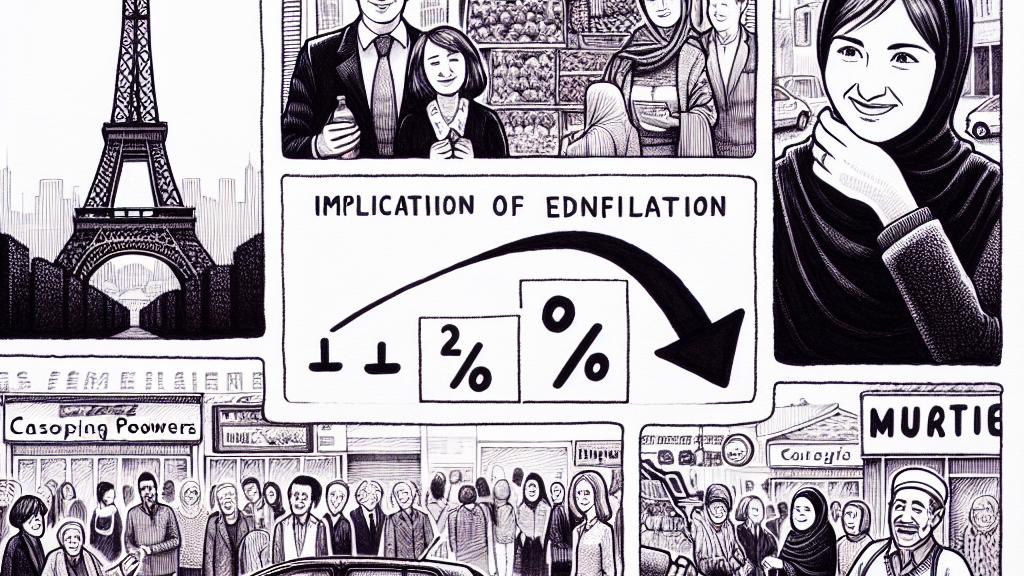French Inflation Drops Due to Lower Energy Prices in September
Overview
- In September, French inflation plummeted to an impressive 1.5%, a significant drop from 2.2% in August, marking a pivotal moment for the economy.
- Key drivers for this sharp decline were reduced energy and transport costs, demonstrating the direct impact of global market conditions on local prices.
- These changes may push the European Central Bank to reconsider its monetary policies, possibly leading to strategies designed to stimulate growth and recovery.

A Significant Decline in Inflation in France
In a promising economic development, France's inflation rate has dramatically decreased to 1.5% in September, down from 2.2% just a month earlier. This notable drop exceeded expectations, as economists had forecasted a rate around 2.0%. Such a sharp decline is more than a statistic; it reflects tangible relief for everyday consumers who are now likely to encounter more manageable prices at the checkout. For example, families can expect lower grocery costs and reduced fuel expenses, which can significantly enhance their purchasing power and overall confidence in the economy.
Understanding the Driving Forces Behind the Decline
Diving deeper into the reasons behind this inflationary slump reveals several critical factors at play. Primarily, the reduction in energy prices has served as a major catalyst for this transition. The price of crude oil has seen significant fluctuations, with Brent crude recently priced around $71.45 per barrel. This decline in energy costs impacts not only direct fuel prices but also the costs associated with goods and services that rely on energy for production and transportation. Moreover, the seasonal effects observed in the transport industry have contributed to lowered costs, enabling consumers to enjoy a wider array of affordable products. Clearly, this interconnectedness of global markets and local consumer pricing illustrates how shifts in one area can resonate throughout the economy.
The Road Ahead: Potential Implications for Economic Policy
With these changes in inflation, attention turns towards the European Central Bank (ECB) and its potential reactions. Policymakers are now faced with an important task: reevaluating their current strategies to boost economic recovery. Many experts argue that lower inflation rates can provide a unique opportunity for the ECB to implement stimulus measures, such as reducing interest rates further. This could motivate increased borrowing and investments, both of which are essential for economic growth. Given the complexities of the economic landscape, careful and strategic decision-making by the ECB will be crucial in steering France towards a prosperous future. After all, maintaining stability and sparking growth in a recovering economy is a balancing act that requires both foresight and adaptability.

Loading...